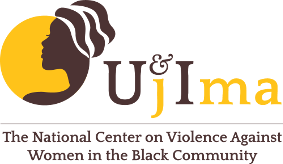In a study done, entitled Early Impacts of the COVID-19 Pandemic: Findings from the 2020 Guttmacher Survey of Reproductive Health Experiences, it was found that due to different disruption variables, COVID-19 will have “major consequences for reproductive health goals and behaviors, access to care and far beyond,” including exposure to IPV, particularly acts of sexual violence or reproductive control. While this report only collected data from cisgendered women in the United States, the information is still fruitful. It demonstrates that almost all previous large scale disasters have disproportionately affected women’s reproductive care, and COVID-19 is proving to be no different. The report also pays attention to women from already disadvantaged backgrounds, either economically or due to some sort of racial/ethnic bias. We see that “Black women and Hispanic women were more likely than white women to state that because of the pandemic, they wanted to have children later or wanted fewer children,” and that access to in-person health care regarding birth control was harder among “Black and Hispanic women than among white women, and more common among queer women than among straight women.”
It is important to note, additionally, that the recession that has been caused due to the global pandemic has disproportionately affected women, as females account for the 55 percent of the nearly 20.5 million jobs lost in April, being the first time since 1948 that the female unemployment rate has reached double digits. This time though, the people particularly affected are nonwhite, noncis, individuals. The biggest reason for this being “that the industries hardest hit by the pandemic — leisure, hospitality, education and even some parts of health care — are ” typically more nonwhite and female than others.
All of these factors have contributed to women across the country believing that access to contraceptives are more essential now than ever, this opinion being most popularly held by middle aged women and Black women — around 68 percent. Yet, the COVID-19 pandemic has increasingly highlighted the severe healthcare inequalities present, as Black women are disproportionately finding it harder and harder to obtain contraceptives during this time. Women are both wanting birth control at higher rates than ever, while also having lower incomes and more significant financial burdens than ever, and the racial disparities existing in the childbearing sphere are glaringly present.
Additionally, in a recent Supreme Court decision Trump v. Pennsylvania, they ruled that “regulations allowing employers and universities to opt out of covering birth control in their insurance plans if they cite a religious or moral objection are legal” leaving women to shoulder the full cost of their birth control without any insurance coverage. This devastating opinion will just further disenfranchise women of color and nonbinary and/or gender nonconforming individuals, making it harder for them to get the healthcare they desire within a reasonable budget.
Another form of healthcare disparity that has become obvious during this pandemic is the exclusion of women from clinical trials and the subsequent lack of information about diseases that predominantly affect women. In order to provide equitable and accessible healthcare for everyone it is necessary to build a research agenda that includes women, and women of color. This information is highly important, as it can lead to revealing information, such as the disturbing trends that indicate that women of color are more likely to contract the virus than say, white women. This also has an impact on maternal health, as studies have shown that “Hispanic and non-Hispanic Black women were disproportionately likely to be affected by COVID-19 during pregnancy” and that “even before this pandemic, Black women were three to four times more likely to die from pregnancy-related complications and at increased risk of severe maternal morbidity.” All of this indicates a serious and underlying problem that needs addressing.
The disparities in maternal mortality and morbidity in women of color versus white women are stark and disturbing. While the pandemic may have highlighted it, the public health crisis affecting women of color in the U.S. has existed long before the pandemic, “specifically, the maternal health crisis that has led to Black and Indigenous women dying at three to four times the rate of white women.” Now, in the age of COVID, women are less and less able to achieve the healthcare they desire, yet the demand has continued to rise as women are looking to put off having children.
Resources:
https://www.guttmacher.org/report/early-impacts-covid-19-pandemic-findings-2020-guttmacher-survey-reproductive-health#
https://www.nytimes.com/2020/05/09/us/unemployment-coronavirus-women.html
https://www.nationalfamilyplanning.org/new-poll-a-majority-of-us-women-support-access-to-birth-control-during–covid-19-pandemic-nfprha-poll-finds
https://powertodecide.org/about-usnewsroom/power-decide-statement-supreme-court-decision-allowing-employers-deny
https://www.americanprogress.org/issues/women/reports/2020/07/15/487429/toward-equitable-treatments-womens-health-coronavirus-beyond/
https://www.americanprogress.org/issues/women/reports/2020/07/15/487429/toward-equitable-treatments-womens-health-coronavirus-beyond/
https://www.americanprogress.org/issues/women/reports/2020/04/23/483828/coronavirus-crisis-confirms-u-s-health-care-system-fails-women/

